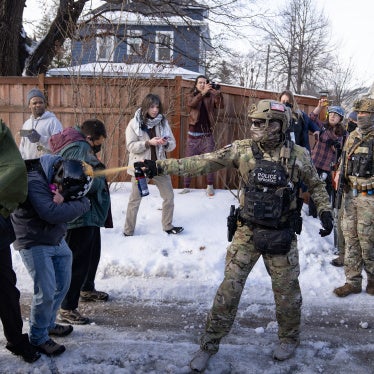In the buildup to last night’s State of the Union address, immigration reform advocates fell into two camps over how US President Barack Obama should approach the issue in his speech. One suggested that he play it cool: raise the need for reform, but give the Republican majority in the House of Representatives time to tackle what is, for them, a thorny political issue. The other urged Obama to announce he would use his broad executive authority to give relief to millions of unauthorized immigrants and their family members currently harmed by the outdated and unfair immigration system.
Obama, disappointingly in my view, ended up following the safer, "play it cool" approach. He made a generalized economic argument for immigration in a few lines of his speech, and then said simply, “let’s get immigration reform done this year.”
Meanwhile, 17 million people in the United States were left waiting. That's the number of people who live in a household in which at least one member is an unauthorized immigrant—17 million people who live in daily fear of having their families broken apart.
In a sense, both advocacy camps were right. The issue of immigration reform is not about who should act next. Both the US Congress and the president should act. The more urgent question is when. And the answer, in both cases, is now.
Over the past decade, the federal criminal justice system has been overtaken by criminal prosecutions of border crossers and other immigration prosecutions, which now outnumber prosecutions for all other federal crimes. The US government is now in effect prioritizing the criminal prosecution of people who may simply be trying to return to their families.
At the same time, immigration enforcement has lost its mooring, with deportations based not on a focused effort to remove dangerous violent criminals but on numerical goals, and decisions to detain immigrants not on the basis of risk of flight or dangerousness but on arbitrary, legislatively mandated quotas.
Considering the glacial pace of congressional action, President Obama could have announced his intention to slow down deportations for people with strong family ties in the United States. Or he could have expanded and strengthened his current deferred action policy, which allows people to temporarily remain in the United States and be granted work authorization, but which is currently limited to people who came to the US as children.
But he didn't. Instead, he left the broken status quo in place last night, leaving us to hope that Congress will move more boldly, and more quickly. There’s only one “right time” to fix the flawed immigration system and to stop its trampling over family unity and other human rights. That time, politically or otherwise, is now.








